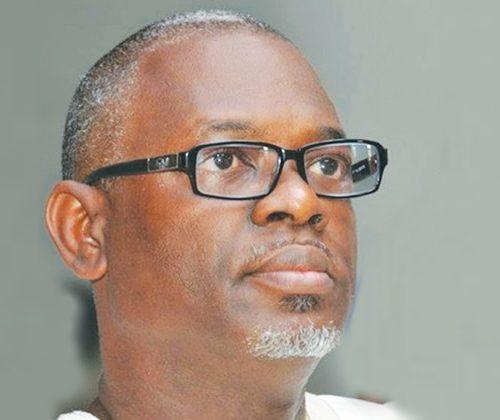The Nigerian finance industry has seen an increase in the number of women leaders in recent years and sustaining the momentum will help to create more products and services for women, stakeholders have said.
Women’s World Banking recently embarked on research to ascertain the driving force responsible for the increase. The research was set out to answer several questions.
Firstly, how do women working in the finance industry perceive institutional policy increasing their participation in leadership? Secondly, how have perceived generational and sociocultural shifts from the past decade in Nigeria contributed to open spaces and opportunities for women to occupy leadership positions? Thirdly, why do women’s leadership trends differ across sectors within the finance industry in Nigeria?
“I’m really excited. I’m encouraged. A testimony to the last 20-25 years, how we’ve been able to build a pipeline and bench strength. Because why would these women be in the roles, if they had not been enabled? If they haven’t been trained, if they hadn’t been exposed, if the necessary workplace practices were not there to facilitate their managing their lives, if there weren’t male champions that were going to nominate, support and push them? I think that it can only get better,” said Bola Adesola, chairman, Board of Directors at Ecobank.
In a recent workshop conceptualised as part of the community of practice for women’s financial inclusion was coordinated by the Central Bank of Nigeria, delivered by Women’s World Banking and supported by Women in Management, Business and Public Service (WIMBIZ). The workshop, themed ‘Advancing Women As Leaders in Nigeria’s Finance Industry’, was centred on learnings from Women’s World Banking’s research, which showed recent results and intended ways for advancing women’s leadership, through responses and stories of Nigerian women leaders.
“The focus of the workshop was to meet with leaders in the financial sector to identify current realities in having women in leadership across the finance sector, particularly banking, pensions, insurance, investments and more,” said Hansatu Adegbite, executive director of WIMBIZ.
From the research, in discussions with key informants and women leaders in the financial sector, five drivers emerged, and the prevalence and impact were examined.
The first driver is the regulatory mandates or policies that encourage companies to ensure compliance with gender quotas for board and senior level positions, while the second driver is sociocultural shifts, which are about changes in social norms around gender.

The third is how institutions’ internal policies support women’s needs. The fourth looks into formal organisations or informal associations of professional women, with the aim of advancing, empowering and/further developing women as leaders or professionals.
The fifth is women’s educational rights and opportunities, where national policies, state programmes, or other efforts are encouraged to support women’s and girls’ education and protect their right to attend school.
“Women’s World Banking with support and sponsorship from Bill & Melinda Gates Foundation, embarked on carrying out this research to identify those levers that led to the improvement in numbers of women in senior leadership positions, that was recorded in one sector within the financial ecosystem of Nigeria, commercial banks in particular,” Emezino Afiegbe, senior relationship manager, network at Women’s World Banking, told BusinessDay at the workshop.
He said: “We saw a rise in numbers of women CEOs and women who are members of the board, but the financial services ecosystem has other sectors like micro finance banks, fintechs, insurance companies and so on, and we want to see similar groups in the number of women leaders.
Why do we need that growth in the first place? We need that growth because, from our background doing research on women for over 43 years, we have been able to understand various segments on women, and we continue with such research to ensure we identify the gaps that they are encountering. What we have seen is that there is a need to have solutions, products and services tailored to the needs of women.”
Afiegbe added: “We found out that for you to implement solutions that would ensure that women are brought into formal financial services, you need to ensure that meeting the needs of the demand side is done by a supply side which is the engine room.
“The engine room must have gender parity because if you look at the adult population in Nigeria as shared with us by the National Bureau of Statistics in the survey they did with EFInA, among 106 million adults in Nigeria, approximately 50 percent are women.”
For Afiegbe, that is about 53 million women who are adults in the country. “We are actually looking at a 50/50 split; that is the demand. On the supply side, we are seeing a skew towards men. These are the people in the lab who are to think through what the population needs. So, when you don’t have enough women, you don’t have enough voice there, there is definitely going to be a missed opportunity to engage with these women who will now be willing to come into financial services.” he said.
Recognising that, Women’s World Banking decided to look at the supply side (including private and public sectors), to resolve how they can help organisations within the formal financial services to have more women leaders – more women who have the expertise to develop the solutions for the demand side.
“This workshop has been tailored to enlighten our partners in the regulatory space so that they create the enabling environment for the private sector. The report is to show where we are coming from, what the situation is, and then make recommendations. There is an ongoing conversation regarding recognising that there is indeed a gap,” Afiegbe said.
At the workshop, Ada Udensi, acting managing director of Titan Trust Bank, said women have a unique perspective to proffering solutions and it cannot be ignored.
Women’s inclusion matters because the female voice has a perspective to it. You need female voices to bring in those perspectives that may have been overlooked. Our voices matter and this matter should be given serious attention,” Udensi said.
Another participant at the workshop, Odiri Oginni, MD/CEO of United Capital Asset Management Limited, said as long as the numbers of women in investment management are insufficient, there will always be a gap in that space.
“There are gender investment gaps, and these gaps will continue as long as we have less women in investment management. For there to be a change, the gaps must be filled,” Oginni said.
A consultant facilitator of the workshop, Nqobizitha Ndlovu, a director at Adaptive Change Advisors, told BusinessDay that women’s empowerment is an imperative because “it is important to harness all the energy we have as a continent and as a people”.
He said: “As Africans, I truly believe that we cannot advance without half of our skill set, half of our power, and half of our energy dormant. It is important for men as it is important for our women empowerment for inclusion to happen, for there to be equitable distribution of power and resources. This is why I do my work to ensure that there is access for women to engage in the positions of influence that determines the destiny of our continent.
“It is more about creating the space for women to step in and holding the space, because I feel women have their own ‘agency’ to expand. There is a role I can play as an ally to open the doors and to keep them open. I need to cultivate the space for me to step aside for someone to step in, for a woman to step in.”
Source: BUSINESSDAY





















